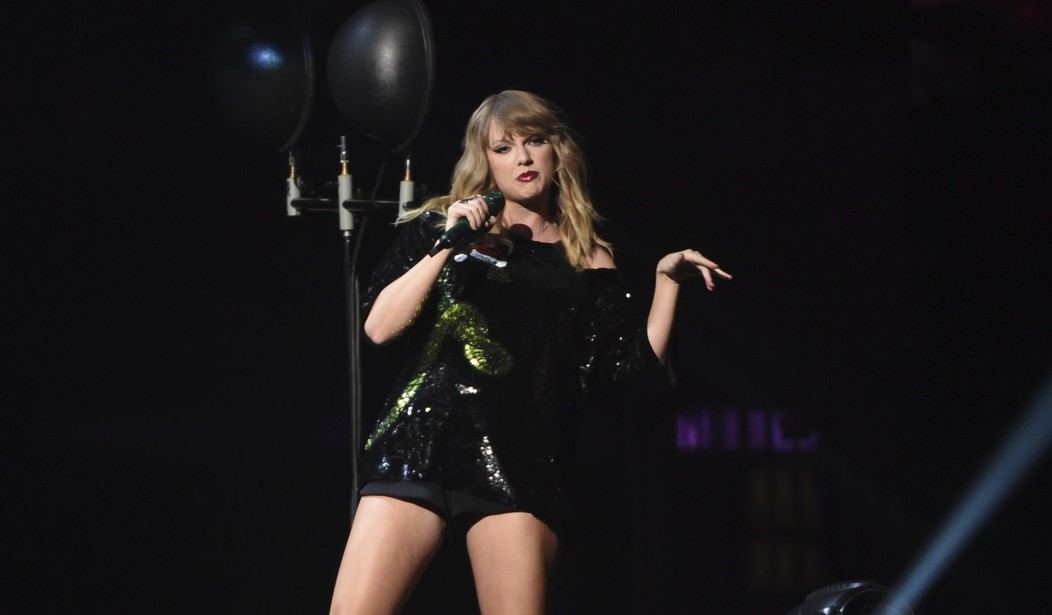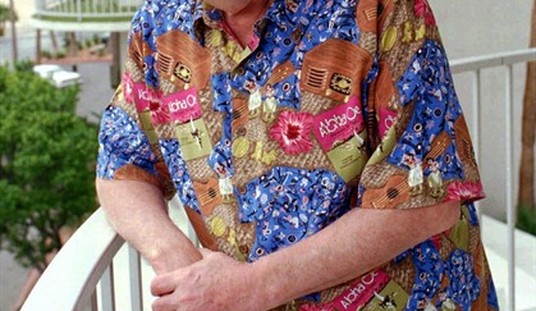You can forget about buying an aftermarket ticket to Taylor Swift or, soon, to any other concert. Or, perhaps “scalping” will return to the much darker, 19th Century-style meaning.
Taylor Swift, one of the more-stalked celebrities in the world, recently used advanced facial recognition technology on fans who spent their hard-earned money on tickets to attend her show. The Verge reports that it was done in the name of keeping the star safe:
Taylor Swift held a concert at California’s Rose Bowl this past May that was monitored by a facial recognition system. The system’s target? Hundreds of Swift’s stalkers.
Swift’s facial recognition system was built into a kiosk that displayed highlights of her rehearsals, which would secretly record onlookers’ faces. According to Rolling Stone, which spoke with a concert security expert who observed the kiosk, attendees who looked at the kiosk were immediately scanned. Afterward, the data was sent to a “command post” in Nashville, Tennessee that attempted to match hundreds of images to a database of her known stalkers.
So fans of Swift’s songs like “I Knew You Were Trouble” and fanatics alike were baited and switched — the bait being the highlight reel, the switch being the bounce to the command post. If that seems shady, it kind of is. There was no notice or warning that such technology would be used, let alone concealed in such a way. But it’s hard to blame Swift, who has been subjected to unstable stalkers for years. Stalkers have a way of unsettling their victims’ whole existence. Social media amplifies their effects.
We already live in a world covered and tracked by cameras everywhere. We carry them around — along with physically tracking GPS technology — on our phones, and our laptops and tablets come equipped with webcams that can be and have been hacked by tricksters and blackmailers. The wise person covers those babies with electrical tape when not using them. CCTV cameras already cover nearly every square inch of our urban centers. Cameras catch you running red lights and send you the bill. Police officers in many jurisdictions now wear mandatory body cameras, adding another perspective to the patrol car cameras they have used for years.
The use of facial recognition technology at events like Taylor Swift’s concert point to another escalation. The Verge notes vendors like Ticketmaster are already working on ways to use facial recognition technology not to determine whether you’re a Swift stalker or not, but to let you in the door in the first place:
“We will continue investing in new technologies to further differentiate Ticketmaster from others in the ticketing business,” Live Nation wrote in a note to investors last week. It added that Blink’s technology could let you “associate your digital ticket with your image, then just walk into the show.”
That show may be a concert, a movie — anything that requires a ticket. Which means surveillance technology everywhere, all the time. They see you when you’re sleeping … they know when you’re awake. In 1984, appropriately enough, one-hit-wonder Rockwell sang this:
I’m just an average man, with an average life.
I work from nine to five; hey hell, I pay the price.
All I want is to be left alone in my average home;
But why do I always feel like I’m in the Twilight Zone, andI always feel like somebody’s watching me.
And I have no privacy.
Woh, I always feel like somebody’s watching me.
Tell me is it just a dream?
Nope! Not anymore. And as with any technological advance, there will be benefits to us and implications for our privacy at the same time. Concerts such as Swift’s are private events, in which there is no expectation of privacy. The same goes for a movie and most events you pay to attend on someone else’s private property. If you buy a Facebook Portal — which can track you as you move around the room — and you keep it in your home, that’s your choice. Walking down a public street in a public city comes with no expectation of privacy as well.
On the “benefits” side of the ledger, smart technology makes life a whole lot more convenient. We’re already spoiled using our phones to guide us around wrecks and other hazards in traffic. They hold our schedules, our communications with family and friends, our photo memories — technology is how we record our lives. We can look up nearly anything at any time and can buy that perfect gift through an app the instant we think of it, no matter where we are. Improvements in facial recognition technology should make it more difficult for thieves to steal our identities and rack up debt in our names. It will become easier to track and apprehend all sorts of criminals and terrorists via cameras, facial recognition, and other biometric technology.
On the “threats” side, not all criminals are really criminals, of course — totalitarian governments already use this technology to follow so-called “enemies of the state” whose only “crime” may be speaking their mind. We will be trackable at a more and more granular level thanks to our phones, smart cars, smart things in our homes, smart theaters and venues, and smart urban technology. This technology is always on and in more and more places every day.
Are the conveniences and improvements in safety and security worth the impacts on privacy? We have been answering “yes” — sometimes with our consent, and sometimes without it.









Join the conversation as a VIP Member